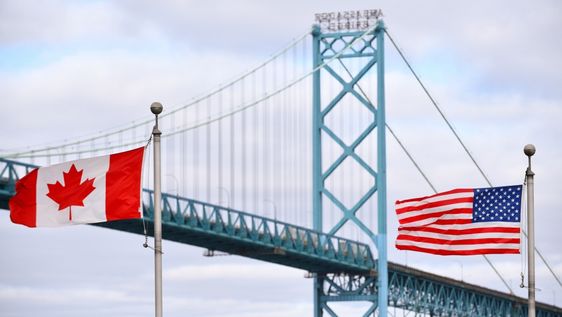The first and most important step in your move is securing the right visa or permit. Canada has several immigration programs, and your eligibility will depend on your personal situation.
1.Permanent Residency (Express Entry): Express entry is one of the fastest if you are interested in immigrating into Canada in the long run as a skilled worker. They rely on a scoring system recognizing age, education, working experience and language skills.
iii. Family Sponsorship: BCP holders may be sponsored by close family members resident in Canada or permanent residents of the country
Actionable Tip: If you plan to come to the United States on a visa, be advised that you have to wait a couple of months for approval. For easier assessment of the best visa option for you, make sure to refer to the Immigration, Refugees, and Citizenship Canada (IRCC) website and gathers all relevant documents including proof of funds, educational credentials and the results of language tests.
2. Get Your Finances in Order
A major move to another country often comes with significant costs. In addition to moving expenses, it’s important to plan ahead for the financial changes that come with living in Canada.
i. Opening a Canadian Bank Account: If you’re living in Canada, the first matter of business that you will have to address is to get yourself a Canadian bank account. This will assist in dealing with other ordinary expenditure and always prepare for the job or rental expenditures.
ii. Tax Considerations: First, since you’re changing your residency from United States to Canada as a US citizen, you will need to learn all about international taxation. However, to avoid high taxation and to be acquitted of all the responsibilities you need to hire a tax advisor since there is a treaty between USA and Canada concerning double taxation.
iii. Cost of Living: Economically, the price index differ significantly from one Canadian city to the other. This means that costs may be higher in bigger cities for example Toronto, Vancouver or Montreal, and comparatively lower in other cities or towns where rents for houses and other amenities might be lower.
Actionable Tip: Design a clear moving budget that should include the visa expenses, the travel expenses, temporary accommodation and insurance expenses. To get the ideal estimate of cost, try to find out how much expenses each month are in the destination city.
3. Secure Housing in Canada
Finding a place to live can be one of the most stressful aspects of moving abroad, but with some preparation, it can be managed smoothly.
i. Rent First, Then Buy: If you are not sure on your plans after leaving school or the best area to live in then it is advisable to start by renting. This also make it easier for you to get to know your new city before you fully move in and set permanent roots rather permanently.
ii. Explore Online Real Estate Listings: There are many places on the internet where people in Canada could find house for rent or houses for sale like Realtor.ca and Kijiji. Expatriates may also seek information on certain cities and special neighborhood, rental charges, etc through the forums online.
iii. Actionable Tip: If possible, it is recommended that you pay a visit to your new city before moving there in order to tour around and see the properties first hand. If you cannot do this, you may consult a real estate agent who has specialized in housing the foreigners.
4. Healthcare: Registering and Understanding Coverage
One of the most important things to arrange when moving to Canada is your healthcare coverage. Canada’s healthcare system is publicly funded, but each province has its own rules for registration and coverage.
- Provincial Health Insurance: Once you arrive in Canada, you must apply for your provincial health insurance card. Coverage usually takes up to three months to kick in, depending on your province, so it’s essential to have private insurance in place during this waiting period.
- Health Insurance Options: Some employers offer health benefits that include insurance for this waiting period. Alternatively, you can purchase private insurance from a variety of companies.
Actionable Tip: Register for your provincial health card as soon as you arrive in Canada. Meanwhile, secure temporary health insurance to cover medical expenses until your provincial coverage becomes active.
5. Adapt to Canadian Culture and Lifestyle
Canada is known for its friendly, multicultural society, but there are some cultural differences you may need to adjust to. Being prepared for these changes will make your transition easier.
- Language: While most Canadians speak English, French is also an official language, particularly in Quebec. If you’re planning to live in a bilingual area, learning basic French will make everyday life easier.
- Weather and Clothing: Canadian winters can be long and cold, especially in cities like Toronto, Calgary, and Montreal. Be sure to invest in high-quality winter clothing, including a warm coat, boots, gloves, and a hat.
- Transportation: Public transportation varies by city, with major cities offering comprehensive bus, subway, and train systems. In rural areas, you may need to rely more on a personal vehicle.
Actionable Tip: Take some time to learn about Canadian customs and etiquette before you arrive. Join online forums or Facebook groups for expats in Canada, where you can get tips on everything from where to shop to understanding Canadian slang.


